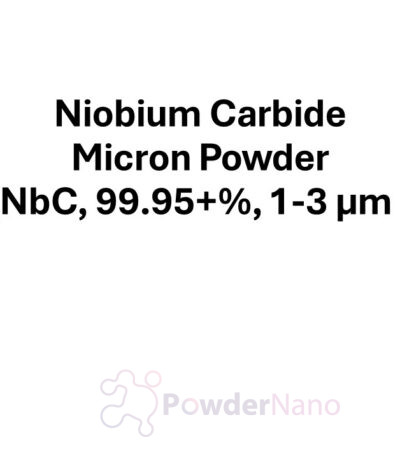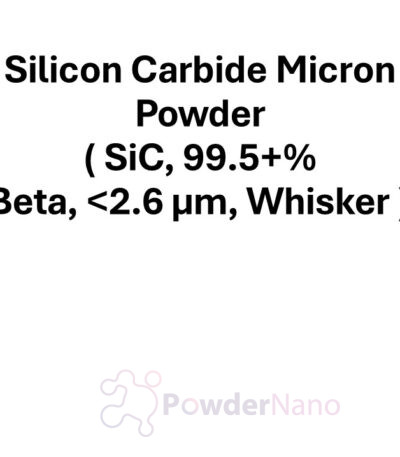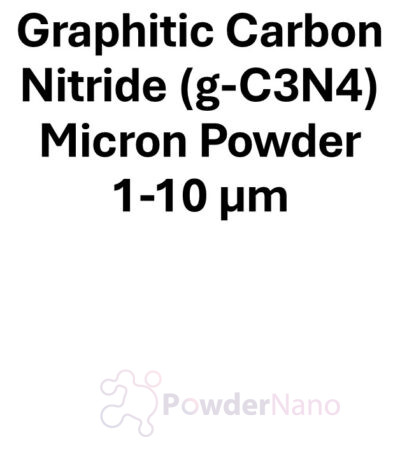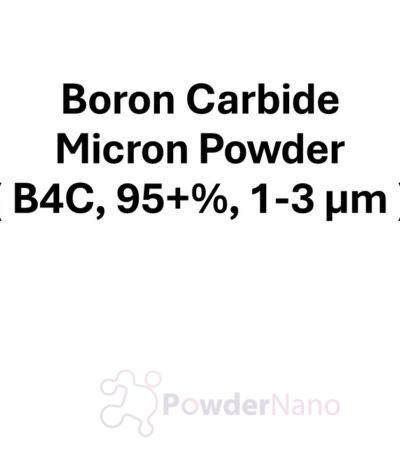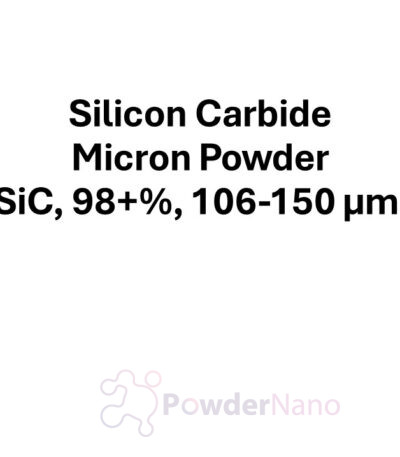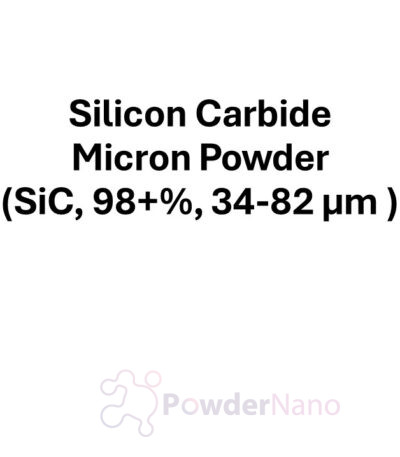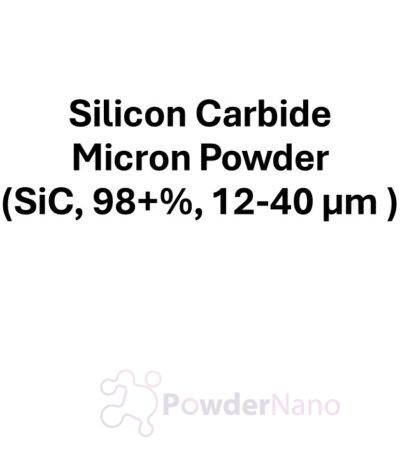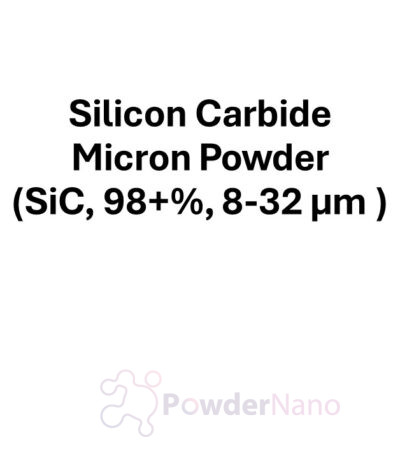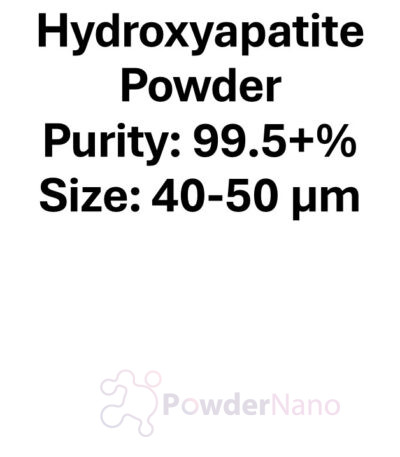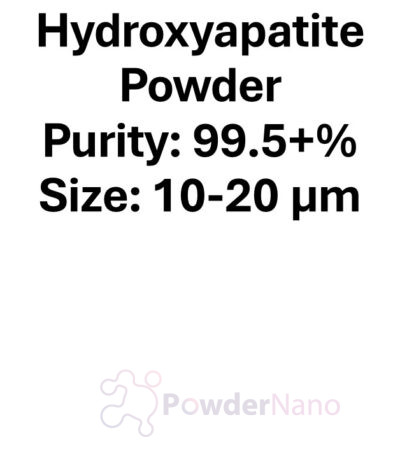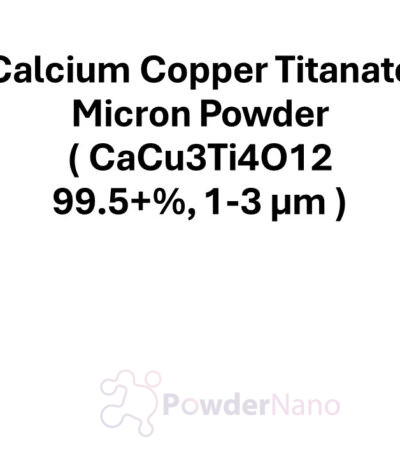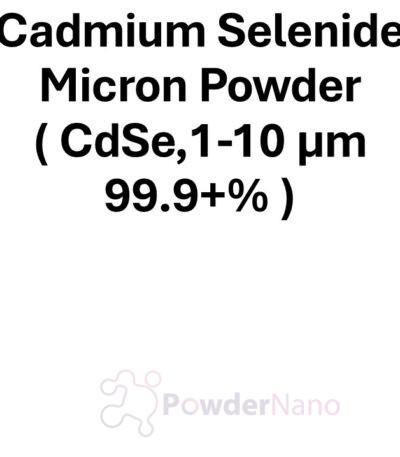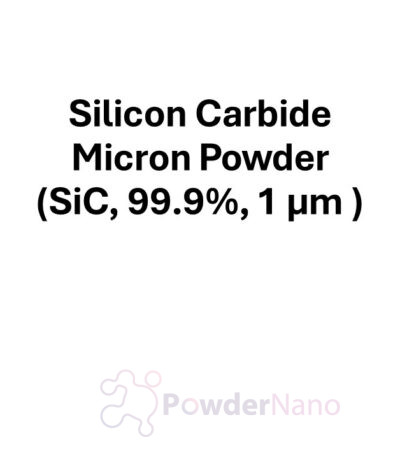Silicon Carbide Micron Powder (SiC, 99.9%, 1 µm)
Technical Specifications:
- Material: Silicon Carbide (SiC)
- Purity: 99.9% (high purity)
- Particle Size: 1 µm (micron)
- Shape: Typically irregular or angular, depending on the manufacturing process
- Density: Approximately 3.21 g/cm³
- Melting Point: Approximately 2,700°C (4,892°F)
- Boiling Point: Sublimes at approximately 3,200°C (5,792°F)
- Chemical Composition:
- Silicon (Si): ~70%
- Carbon (C): ~30%
Applications:
- Semiconductor Devices:
- Silicon Carbide (SiC) is widely used in the production of semiconductor devices due to its high thermal conductivity, wide bandgap, and high voltage tolerance. The 1 µm micron powder is particularly used in power electronics, such as diodes, transistors, and MOSFETs for high-power and high-frequency applications.
- SiC is ideal for use in electric vehicles (EVs), solar inverters, motor drives, and industrial power systems that require efficiency and reliability under high-voltage and high-temperature conditions.
- High-Performance Ceramic Materials:
- Silicon Carbide is widely used in ceramic materials for applications requiring high strength, hardness, and thermal stability. The 1 µm micron powder is used in the production of high-performance ceramics that are used in aerospace, automotive, and defense industries for components such as brakes, bearings, cutting tools, and wear-resistant parts.
- It is also used to produce ceramic coatings and composites that offer enhanced durability in harsh environments.
- Abrasives:
- Silicon Carbide is commonly used as an abrasive material due to its extreme hardness and wear resistance. The micron powder is used to manufacture grinding wheels, polishing pads, and lapping materials for industries such as metalworking, electronics manufacturing, and automotive finishing.
- SiC powder is ideal for use in fine grinding and polishing applications where precise material removal is required.
- Thermal Management:
- Silicon Carbide is used in thermal management applications because of its high thermal conductivity and thermal stability. The micron powder is used in heat exchangers, radiators, thermally conductive coatings, and power modules to effectively dissipate heat and ensure efficient operation of electronic devices, LED lights, and high-power components.
- SiC is also used in thermal barrier coatings in industries like aerospace and automotive to protect components from extreme thermal environments.
- Lighting Applications:
- Silicon Carbide is used in high-brightness light-emitting diodes (LEDs) and laser diodes due to its wide bandgap and high breakdown voltage. The micron powder is used in LED substrates and optical components for high-power lighting and displays.
- The material is also used in power-efficient lighting systems, including automotive lighting and street lighting, where high performance and long operational life are needed.
- Electrical Insulation:
- SiC is used as an electrical insulator in high-voltage and high-frequency applications. The 1 µm micron powder is used to create insulating layers in semiconductors, electrical circuits, and capacitors for power electronics, ensuring efficient electrical conduction and reliable insulation.
- SiC’s high dielectric strength and stability at high temperatures make it ideal for insulating materials in power transmission systems.
- Nuclear Applications:
- Silicon Carbide is used in nuclear reactor technology due to its radiation resistance and thermal stability. The micron powder is used to produce ceramic fuel cladding and nuclear reactor components that must withstand high radiation doses and extreme temperatures.
- SiC is employed in nuclear fusion reactors and high-temperature gas-cooled reactors for its ability to maintain structural integrity under harsh conditions.
- Supercapacitors and Energy Storage:
- Silicon Carbide is explored in supercapacitors and energy storage devices due to its high surface area and electrochemical properties. The micron powder is used in the production of electrode materials for high-power storage systems in electric vehicles, renewable energy systems, and industrial energy storage.
- SiC-based supercapacitors are used for rapid charge/discharge cycles and high-efficiency energy storage.
- Battery Materials:
- Silicon Carbide is also used in lithium-ion batteries and sodium-ion batteries to improve energy density, stability, and thermal management. The micron powder is used in the production of electrode materials and battery additives to enhance the performance and cycle life of batteries.
- It is particularly beneficial in applications where high power output and temperature stability are critical, such as electric vehicles and portable electronics.
- Research and Development:
- Silicon Carbide micron powder is widely used in research and development to explore new applications in semiconductor devices, energy systems, nanomaterials, and high-performance materials. Researchers use SiC to create advanced coatings, composite materials, and functionalized surfaces for innovative technologies in electronics, power systems, aerospace, and automotive industries.
- The powder is often used in the development of nanoengineered SiC materials for energy-efficient systems, high-power electronics, and wear-resistant applications.
Silicon Carbide Micron Powder (SiC, 99.9%, 1 µm) is a high-performance material with exceptional hardness, thermal conductivity, oxidation resistance, and electrical properties. It is widely used in semiconductors, power electronics, abrasives, ceramic materials, and high-temperature applications. The micron powder form ensures precise integration into coatings, composites, and catalysts, enabling the development of next-generation technologies for energy storage, high-power devices, aerospace, and industrial manufacturing. Its unique properties make it essential for cutting-edge applications in industries requiring reliability, efficiency, and durability under extreme conditions.
